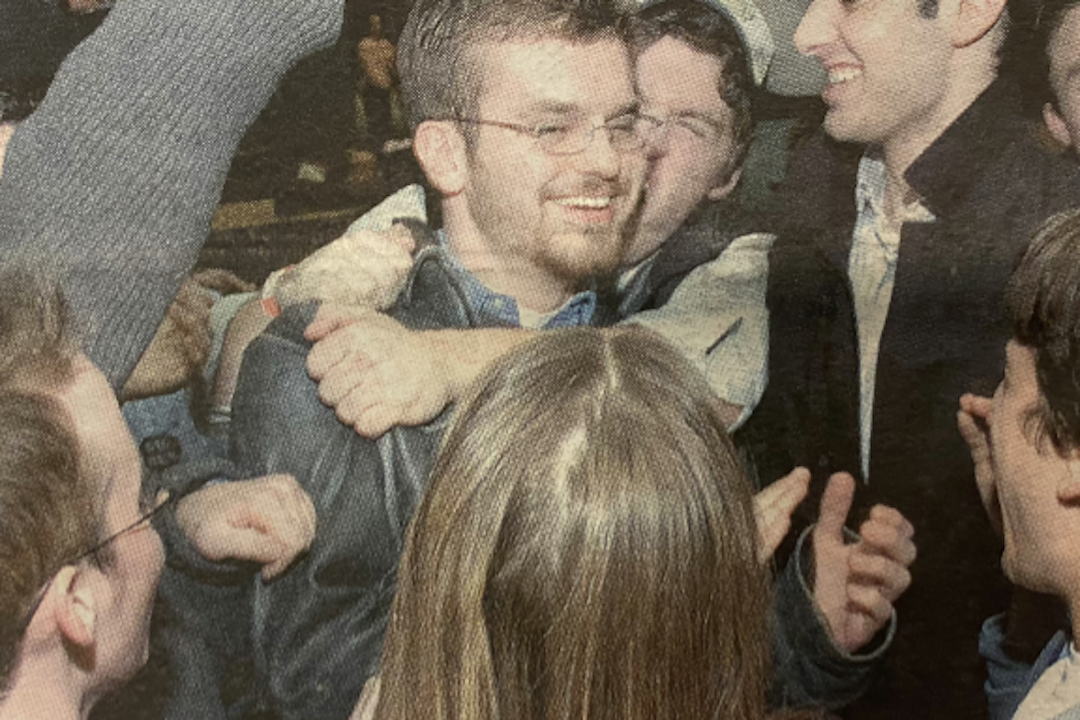When the freshman was receiving treated for bulimia, she said she only met one man who was also seeking help for an eating disorder.
The freshman, who asked to remain anonymous, went to the facility full of mostly young women because she struggled with feelings of inadequacy, she said, which she channeled into purging. Men are even less likely than women to seek treatment because of the stereotype that they are “women’s diseases,” according to the National Association of Anorexia Nervosa and Associated Disorders.
It wasn’t until her parents confronted her about her bulimia that the freshman realized her coping mechanism had become a serious problem.
“If I didn’t have the support system that I did… I wouldn’t have even considered the fact that I had an eating disorder at all. I was very lucky that I found out so soon,” she said.
To raise awareness of eating disorders, especially among men, a coalition of GW student groups is hosting events from Feb. 22 to 28 for National Eating Disorder Awareness Week.
Ten to 15 percent of people with anorexia or bulimia are male, and the number of men reporting that they struggle with those disorders has nearly doubled in the last decade, according to ANAD. The disorders affect about 20 percent of women.
Brian Cuban, the author of “Shattered Image: My Triumph Over Body Dysmorphic Disorder,” will speak on Feb. 25.
Nancy Cass, who was hired in 2014 as the University Counseling Center’s first eating disorder services coordinator, said organizers hope Cuban’s speech will counter the idea that eating disorders are exclusive to women.
“Our hope is that including a male speaker will help decrease stigma that some men face when speaking about eating issues, as well as educate our community that eating disorders can impact everyone,” Cass said.
Students Promoting Eating Disorder Awareness and Knowledge, the Colonial Health Center, the Milken Institute School of Public Health and the Student Association will host events to recognize the week. New events include a meet-and-greet with students and a body image event hosted by the Multicultural Student Services Center that will focus on the LGBT community.
Familiar events include the Great Jeans Giveaway, in which students can donate an old pair of jeans to a local shelter, and Trash the Scale, where students throw away or graffiti their old scales.
One of the goals this year is to educate students about not just the physical ramifications of eating disorders, but the mental aspect. Cass said the aim is to encourage more people to seek mental health treatment as part of their recovery.
“Helping people to understand that eating disorders are not solely about one’s body or food helps take the discussion away from the surface to the deeper mental health issues people struggle with,” she said.
Cass leads a “Body Image and Eating Concerns” group every Friday from 10 to 11:30 a.m. for undergraduate and graduate students in a joint effort with SPEAK.
Laura Porter, the president of SPEAK, said she took the helm of the organization in fall 2013 to help students recovering from eating disorders like herself. She said to help struggling students seek the right treatment, GW needs a community that isn’t afraid to have honest conversations.
“Unfortunately, it’s a pervasive mental illness and it’s important to break the silence surrounding the issue so that people can know where to turn to for help,” Porter said.
Jeanine Marie contributed reporting.






